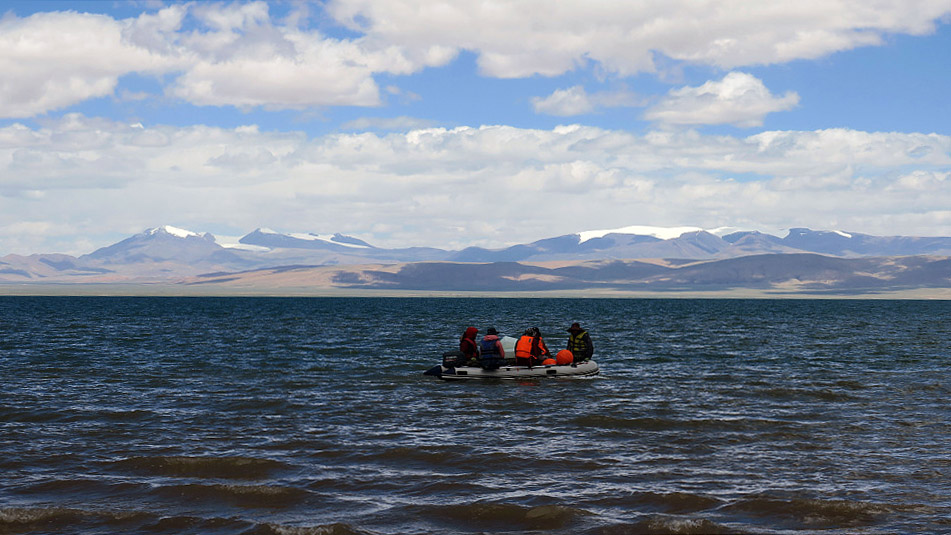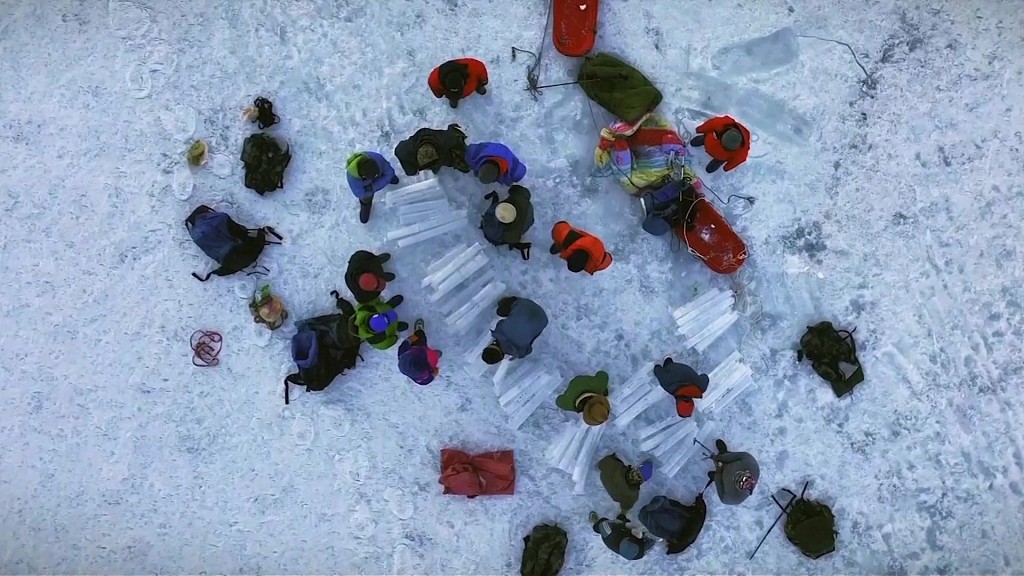To comprehensively understand and monitor the changes on the plateau's glaciers, biodiversity and ecological environment, the second scientific expedition to the Qinghai-Tibet Plateau started in 2017 and Cao Yingfang is part of it.

A team conducts research in a plateau lake in Nagqu, southwest China's Tibet Autonomous Region, 2021. /CFP
A team conducts research in a plateau lake in Nagqu, southwest China's Tibet Autonomous Region, 2021. /CFP
As a young researcher and a doctoral student at the University of Chinese Academy of Sciences, Cao Yingfang's field mission involves taking soil samples and analyzing their microbial content.
Microorganisms act as both decomposers and synthesizers in ecosystems. Cao's research focuses on the synthesis of microorganisms, which incorporate the unstable carbon in the soil into their own synthesis, then grow and metabolize in the soil, and finally die. The residues continuously accumulate in the soil, becoming stable components of soil carbon that could not be easily decomposed.
This is of great significance for the use of soil to suppress greenhouse gas content, reduce the release of carbon from the soil and absorb the atmospheric carbon back under the ground, which is undoubtedly a possible way to mitigate global warming.
When Cao first stepped on the plateau, her body reacted intensely to the high altitude, with effects such as loss of energy and sleep problems due to shortness of breath even with the oxygen tank. She worked for two months in Nagqu Prefecture in southwest China's Tibet Autonomous Region at an altitude of about 4,700 meters, despite her physical discomfort.

A team drills ice cores on the glacier in southwest China's Tibet Autonomous Region. /CFP
A team drills ice cores on the glacier in southwest China's Tibet Autonomous Region. /CFP
Drilling ice cores, taking water samples, collecting air, the young researchers eat and sleep in the wild. Cao is just one of the researchers who have been devoted themselves on the plateau for a great cause.
If others can make it here, so can I, said Cao. With more than 400 days of work on the plateau, her research continues.
For more:
What is it like to be a whale scientist?
The unstoppable force in the battle against desertification in China
Generations that brought green to the seventh biggest desert in China
The cleaners of our nature
Divers help restore coral reef ecosystem in China's waters
(Cover image designed by CGTN's Qubo)
(If you want to contribute and have specific expertise, please contact us at nature@cgtn.com.)